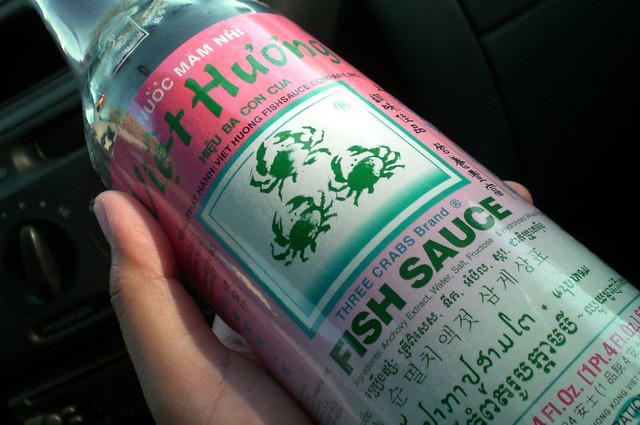Or lime juice. Lime juice is one of my "secret" ingredients. Sometimes a squeeze of lime over the top of a dish can really make the dish come alive!
When I first encountered fish sauce (
nam pla) it sounded sort of weird to me but I knew I wasn't going to be doing any serious Thai cooking without it, so I began using it. Later on I eventually built up to actually tasting it, and I discovered that it was much milder than I had ever imagined, the smell wasn't as strong as I had previously imagined, and I realized that it was quite salty. It sometimes seems to me that fish sauce to some degree is Thai salt, or serves the function in many recipes. (And adds to the flavor complexity too of course.)
These days I don't even measure the stuff (or at least not unless I'm trying to create a written recipe so I can post it on the Internet). I usually just pour it into my pan ingredients, stir things a bit and taste, then add some more if I think it needs it.
Also noting, there are wide variations between brands and there are different kinds of fish sauce, and fish sauce varies depending on origin (e.g. Thai fish sauce, Vietnamese fish sauce, etc.). Somebody who thinks their fish sauce is too strong should find a different brand. I recommend the kind that looks like dark tea with little or no sediments. (My favorite is Cock brand from Thailand, a mild fish sauce IMO.)
Get
mam nem sauce if you want something with a real kick to it!



